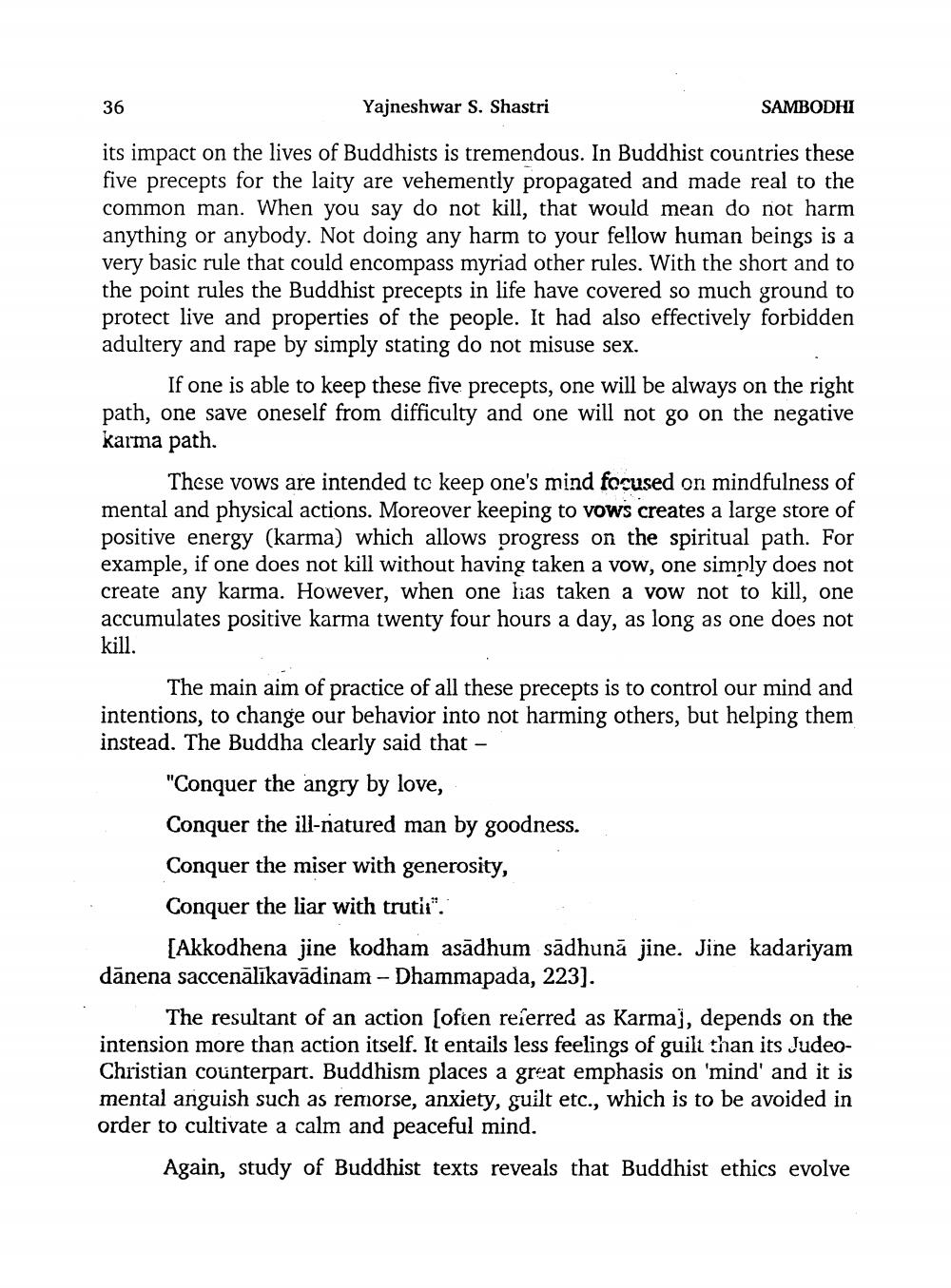________________ 36 Yajneshwar S. Shastri SAMBODHI its impact on the lives of Buddhists is tremendous. In Buddhist countries these five precepts for the laity are vehemently propagated and made real to the common man. When you say do not kill, that would mean do not harm anything or anybody. Not doing any harm to your fellow human beings is a very basic rule that could encompass myriad other rules. With the short and to the point rules the Buddhist precepts in life have covered so much ground to protect live and properties of the people. It had also effectively forbidden adultery and rape by simply stating do not misuse sex. If one is able to keep these five precepts, one will be always on the right path, one save oneself from difficulty and one will not go on the negative karma path. These vows are intended to keep one's mind focused on mindfulness of mental and physical actions. Moreover keeping to vows creates a large store of positive energy (karma) which allows progress on the spiritual path. For example, if one does not kill without having taken a vow, one simply does not create any karma. However, when one lias taken a vow not to kill, one accumulates positive karma twenty four hours a day, as long as one does not kill. The main aim of practice of all these precepts is to control our mind and intentions, to change our behavior into not harming others, but helping them instead. The Buddha clearly said that - "Conquer the angry by love, Conquer the ill-natured man by goodness. Conquer the miser with generosity, Conquer the liar with trutii". [Akkodhena jine kodham asadhum sadhuna jine. Jine kadariyam danena saccenalikavadinam - Dhammapada, 223]. The resultant of an action (often reierred as Karma), depends on the intension more than action itself. It entails less feelings of guilt than its JudeoChristian counterpart. Buddhism places a great emphasis on 'mind' and it is mental anguish such as remorse, anxiety, guilt etc., which is to be avoided in order to cultivate a calm and peaceful mind. Again, study of Buddhist texts reveals that Buddhist ethics evolve




